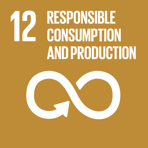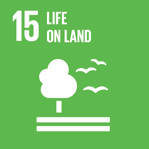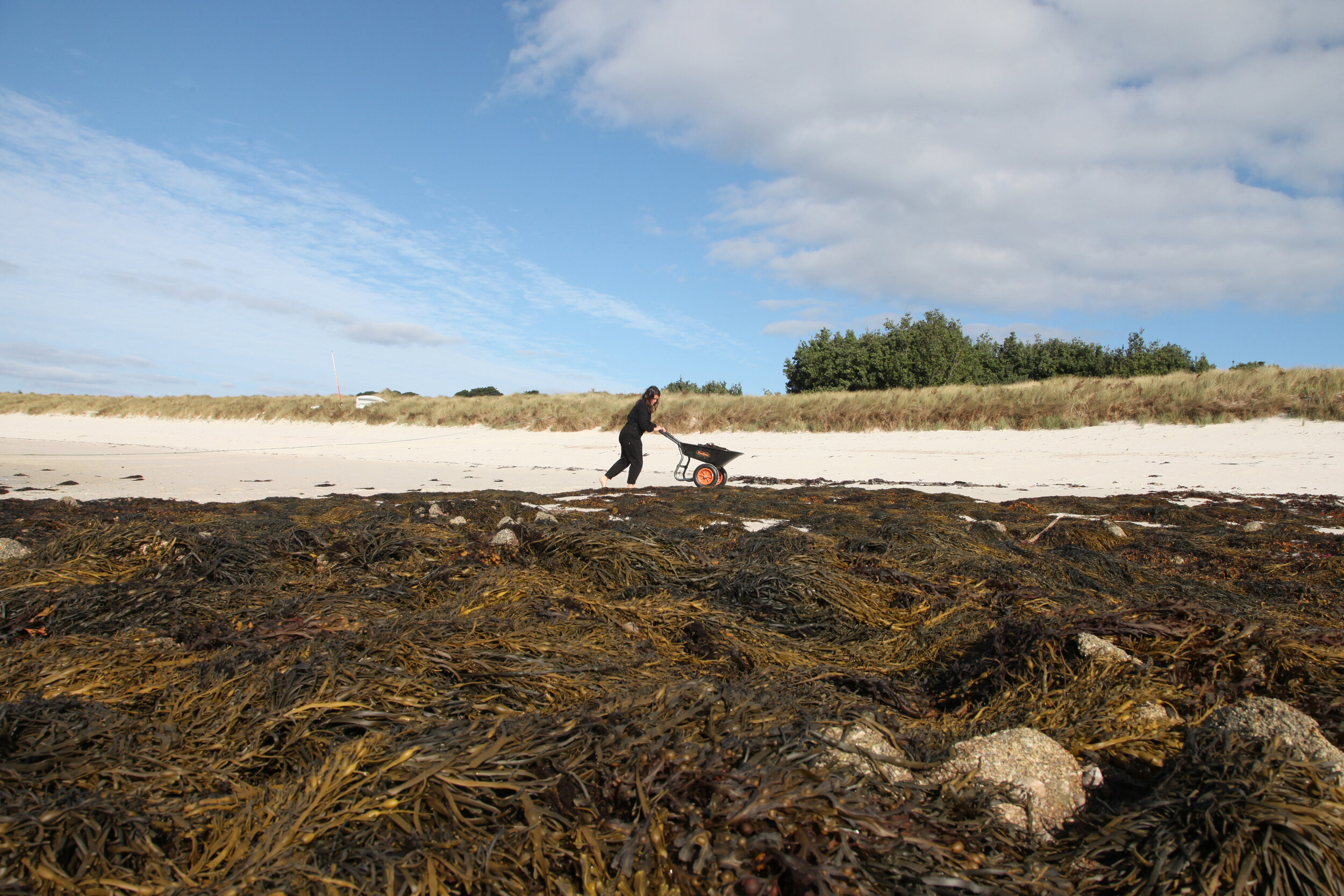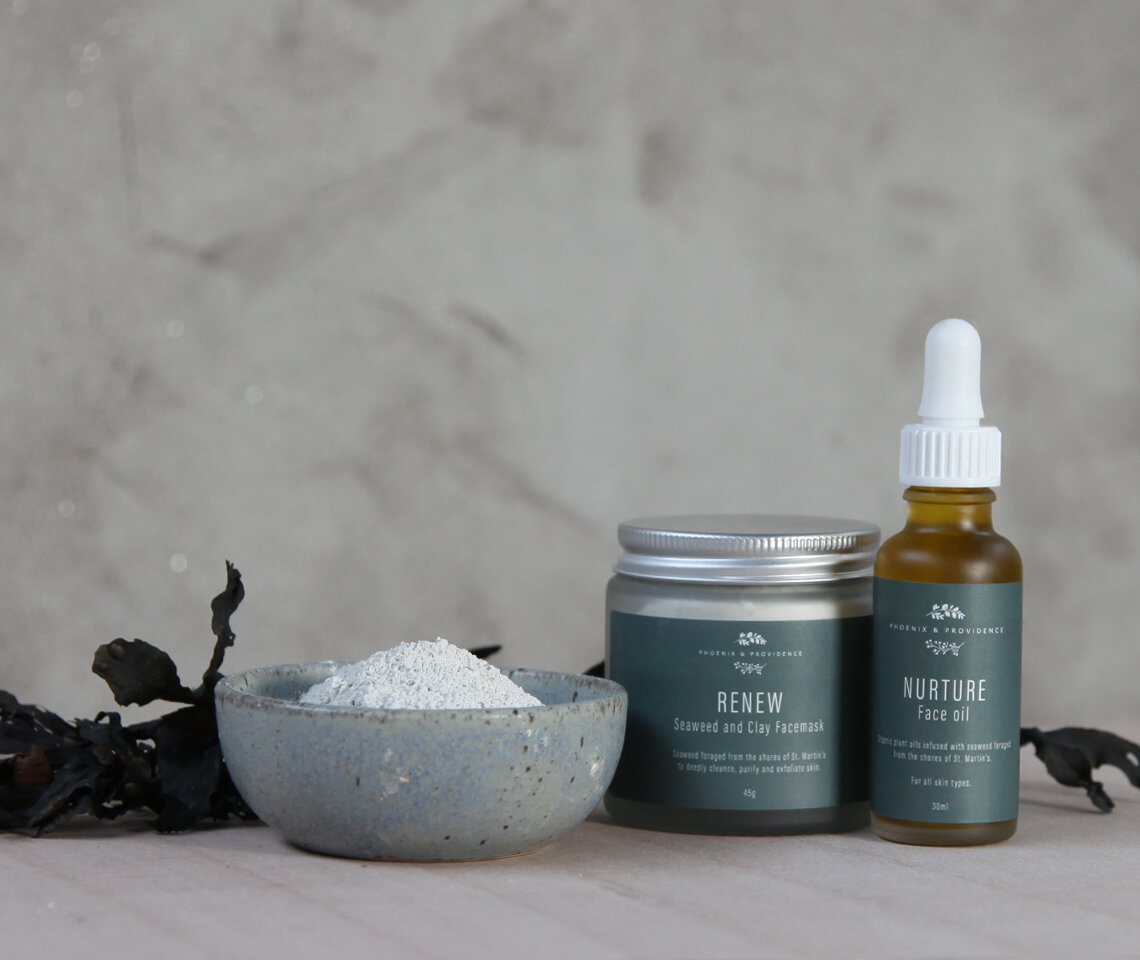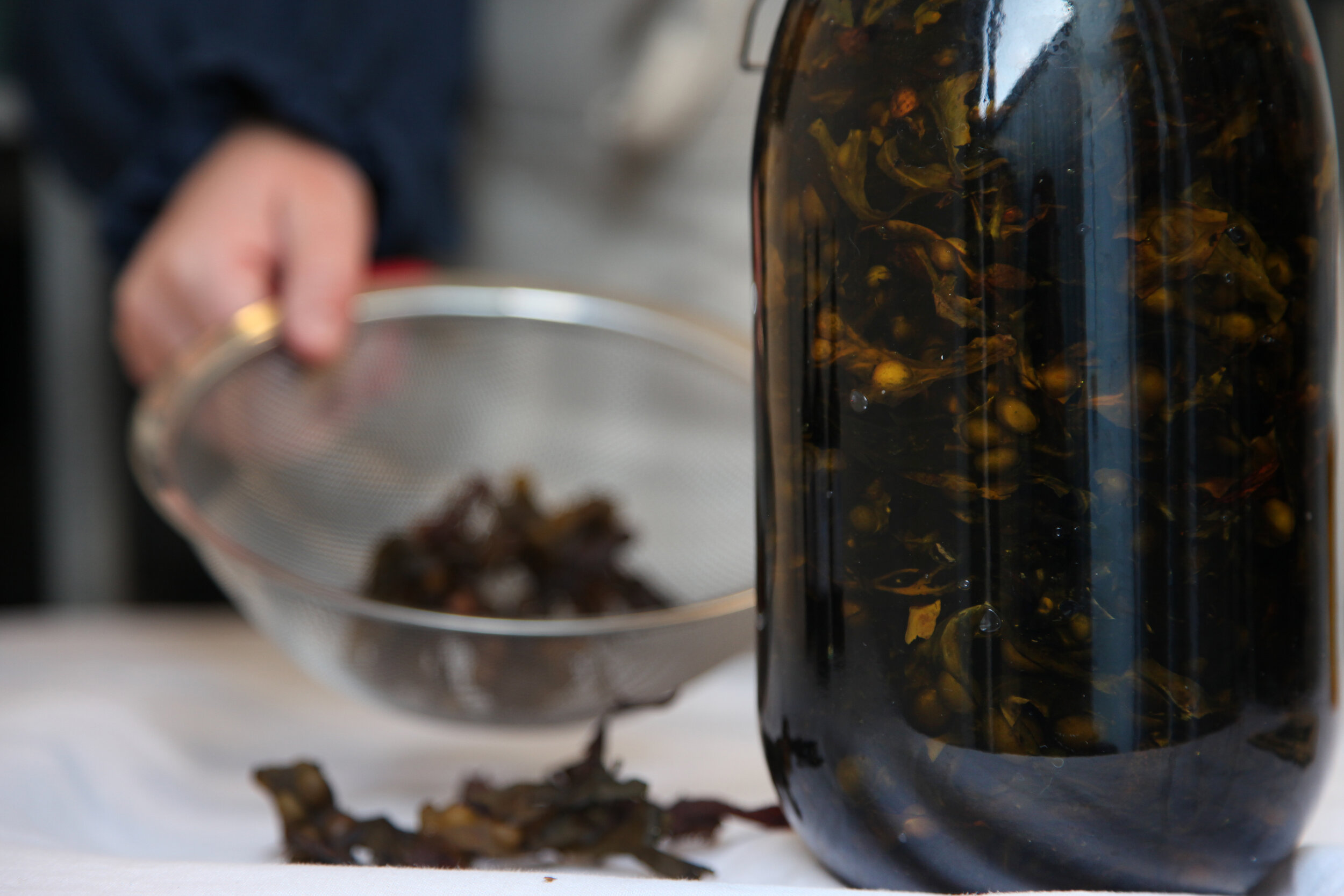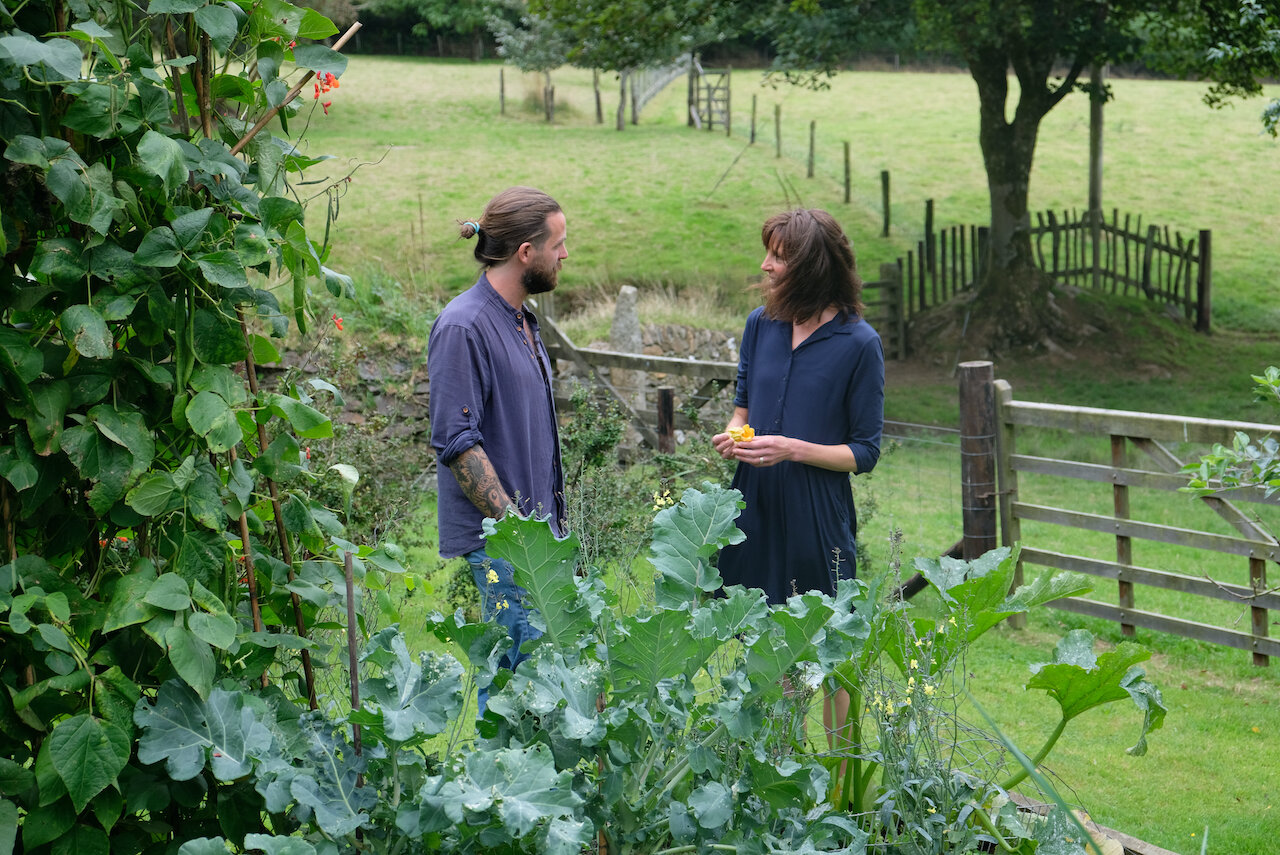Breakfast & Beyond - Episode 7:
Eco-chef James Stawbridge
Chef, photographer and author James Strawbridge is my guest for Episode 7 of Breakfast & Beyond. Sustainability is at the heart of James’s work, and over breakfast we discuss the journey of his career through featuring in the documentary It’s Not Easy Being Green whilst he was a student, years of working in restaurants and as a development chef, presenting environment- and food-based TV programmes and writing books, followed by honing his skills as a photographer and focusing on creating, capturing and sharing simple, honest recipes made with local, seasonal ingredients that are cooked at home and for his family.
James explains not only what cooking and eating sustainably means for him, but also digs deeper into his desire to be a catalyst for positive change within the sustainability movement, led by a strong belief that the way to create lasting behaviour change is to lead by example and inspire, and that small steps such as adopting zero waste principles in the way we eat, can make a big difference.
“My day to day job is trying to represent and capture a plate of tasty food to then share the recipe and inspire people to cook more at home with good ingredients.
My secret mission is driven by a desire to help people live more sustainably"
I invited James to breakfast - and then asked him to cook! We picked some garden produce and created a Zero Waste Courgette Pancake recipe for our second course - you’ll find the recipe below.
Do join us for Episode 7 of Breakfast & Beyond… listen via Apple Podcasts, Spotify, Stitcher & Tune-In
Breakfast: recipes, producers & growers …
Blackberry & Apple Overnight Oats (see recipe)
Fresh berries from Botelet gardens: blueberries, gooseberries, raspberries
Zero Waste Courgette Pancakes (see recipe)
Yoghurt & butter by Trewithen Dairy
Croissants & sourdough from Baker Tom’s
Milk from Green Cow Dairy
Tamar Valley honey, sourced via Green Cow Dairy
Home-made Rowan Jelly
Freda’s peanut butter, sourced via Colwith Farm Shop
Elderflower Jelly made by Gathered Botanicals
Coffee by Lars & Margo
Tea by Tregothnan
Olive oil via Fowey Valley
The Complete Vegetable Cookbook
James’s latest book, The Complete Vegetable Cookbook - which we discuss in Episode 7 of Breakfast & Beyond - will be published on 14th October.
As James describes during our conversation, his latest book is a love letter to vegetables; featuring over 60 vegetables and hundreds of recipes that celebrate zero waste cooking principles, the introduction to each vegetable begins with a vignette about the joys of this particular humble veg!
The recipes are all vegan or vegetarian and provide lots of cooking inspiration for anyone who loves cooking with vegetables, and wants to extend their knowledge and repertoire.
Keep your eyes peeled and ears tuned for a competition to win a signed copy of The Complete Vegetable Cookbook .. more info coming soon.
You can also buy the book from James’s online shop.
This book is a beauty!
Sustainable living issue: food ….
It is well documented that transforming our food systems is a critical part of addressing climate change and protecting biodiversity both on land and in the oceans. That change needs to take place from the way in which food is grown through to manufacturing processes, transportation, packaging along with how we buy, cook and eat. This means that by shifting our eating habits to become more sustainable, we can all play a part in influencing the system, and James’s work is about sharing ideas and inspiration to help us along the way. Below is a snapshot of information setting out the issues we are facing within the food system that we can all play a part in addressing:
The global food system exerts enormous environmental pressures, accounting for around 30% of Green House Gas emissions, over 70% of freshwater withdrawals, and 40% of land use. It is also the principal driver of deforestation and biodiversity loss (UN Environment Programme)
The livestock industry generates nearly 15% of all man made greenhouse gas emissions (WWF) - so eating less meat as a proportion of our diet, and ensuring that the food we do eat (meat, fish and dairy as well as plant-based) is farmed regeneratively, can make a significant difference.
In the UK we produce around 9.5 million tonnes of food waste each year (WRAP)
Without protecting and regenerating the soil on our 4 billion acres of cultivated farmland, 8 billion acres of pastureland, and 10 billion acres of forest land, it will be impossible to feed the world, keep global warming below 2 degrees Celsius, or halt the loss of biodiversity. “Regenerative Agriculture” describes farming and grazing practices that, among other benefits, reverse climate change by rebuilding soil organic matter and restoring degraded soil biodiversity – resulting in both carbon drawdown and improving the water cycle (Regeneration International)
The UK’s food poverty rate is amongst the highest in Europe. Nearly six million adults and 1.7 million children were struggling to get enough food between September 2020 and February 2021, according to a report from the Environment, Food and Rural Affairs committee (Big Issue).
Transforming our food systems has the potential to create high impact in terms of reducing climate change (Breaking Boundaries: The Science of our Planet)
Reducing food waste has been posited as the top priority action we can take as individuals to reduce climate change, in terms of being immediate and impactful. “By fighting food waste, we can shrink the global demand for food, using fewer resources, clearing less land, and reducing overall emissions. The impact of this would be so significant, that Project Drawdown has labelled ‘reducing food waste’ as the number one thing individuals can do to fight climate change.” (Too Good To Go)
Sustainable Development Goals
The UN’s Sustainable Development Goals (SDGs) are 17 targets representing a universal call to action to end poverty, protect the planet and ensure that all people enjoy peace and prosperity by 2030. ‘Everyone is needed to reach these ambitious targets. The creativity, knowhow, technology and financial resources from all of society is necessary to achieve the SDGs in every context’ (UNDP). Translating these global objectives to tease out their relevance at the individual and small-organisational scale can inspire us to connect with these important global themes and consider what we are doing - and what more we can do - to make a contribution that supports our own work and wellbeing along with benefiting other people and the planet.
In Episode 7 our discussion referenced the following Sustainable Development Goals:
2 - Zero Hunger - James’s work aims to inspire and educate in terms of how to eat well using simple techniques; the recipes he shares often references ‘free’ sources of accessing food such as foraging for plants or fishing, and he is dedicated to promoting sustainable agriculture, to make local, organically-grown produce more accessible for all
3 - Good Health & Wellbeing - James discusses that cooking sustainably as being important for our own health as well as that of the environment
12 - Responsible Consumption & Production - James’s work is concerned with responsible consumption and production techniques within the field of food - how what we eat is grown, produced and eaten. He places a significant emphasis on Zero Waste principles in the recipes and food principles that he shares.
13 - Climate Action - during our conversation, James talks about the climate crisis and his strong belief that the best way to address this and change behaviour is through inspiring people to take action, showing how small steps taken by many can lead to a big cumulative difference; that connecting with nature helps to develop our appreciation of the environment and thereby understanding of the climate crisis; and that living the change we want to see is crucial if we want to imbue the next generation with values of appreciation of nature and empathy towards others.
14 - Life Below Water - James is an advocate for sustainable fishing techniques that respect biodiversity and aim to regenerate the oceans.
15 - Life On Land - the food that James cooks is based on sustainably grown and locally sourced produce, through his work he utilises food grown by and promotes individuals and companies that are growing using regenerative techniques with the aim of making this more wide-spread.
Episode 7 Supporter
Ella Mclachlan, founder of Phoenix & Providence
Episode 7 is brought to you with the kind support of organic skincare company Phoenix & Providence. Based on the Isles of Scilly just off the coast of Cornwall, Ella Mclachlan’s range is inspired by her love of sea swimming, created using kelp which she harvests from the beautiful beaches at low tide, then infuses in organic, cold pressed oils for a full lunar cycle.
Ella says, “For me, sea swimming has been a way to find some time for myself as a busy mother of two, to reconnect with nature, to create some headspace and come home to my heart. It’s where Phoenix & Providence began, with a desire to bottle the post sea swim skin glow.”
Seaweed is packed with vitamins K, B, A, and E, that help improve skin tone, texture, and elasticity. High in Vitamin C, these natural antioxidants promote collagen production which help plump skin and smooth fine lines. Seaweed is also replete with humectants, which help skin hydrate and retain moisture.
Ella is offering a 10% discount on all of her products - which include face and body oils, face masks, soaps, body balms, bath salts and more - for listeners of Breakfast & Beyond, simply add the code BREAKFAST10 as you check out at www.phoenixandprovidence.co.uk.
You can also receive a free Seasonal Self Care Rituals guide when you sign up to the Phoenix & Providence mailing list - simply scroll down to the bottom of the page. You can also find Phoenix & Providence on Instagram.
Thank you very much to Ella of Phoenix & Providence!
Podcast recording: behind the scenes …
Thank you for listening!
Thank you for listening to Breakfast & Beyond: Conversations from Cornwall on Sustainable Living. If you enjoyed listening I’d love it if you could subscribe to the podcast, rate it, and share episodes with friends and family who would enjoy them. You can listen and subscribe via Apple Podcasts, Spotify, Tune-In or wherever you find your podcasts.
I’d love to know your thoughts - please join the conversation and get in touch by email tia@botelet.com or instagram. Thank you and I look forward to sharing the the next episode with you!
The Breakfast & Beyond podcast is hosted at our home Botelet Farm in South East Cornwall, where my husband’s family have lived and farmed for over 150 years, and three generations still share the farmhouse today. Set in a peaceful valley upstream of Fowey, we welcome visitors to stay in historic cottages, and there’s a yurt for those who love to immerse themselves in nature.







